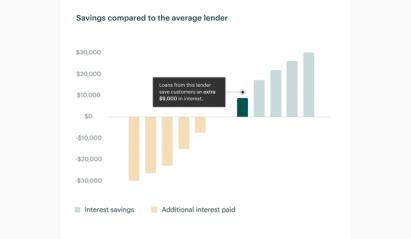The Impending Housing Crisis and Why the US Government Will Need to Bailout the Mortgage Industry...Again
Written by:
Patrick Boyaggi
Patrick Boyaggi
CEO an Co-Founder
Patrick is the Co-Founder and CEO of Own Up. He has a wealth of experience and knowledge as a mortgage executive.
See full bio

The COVID-19 pandemic has caused an economic crisis that is changing people’s financial lives forever, destroying businesses both big and small, and roiling financial markets. The Federal Government has responded with a series of unprecedented actions, including the Federal Reserve pumping billions of dollars into financial markets to keep them from shutting down, the Federal Housing Finance Agency offering mortgage forbearance for homeowners negatively affected by COVID-19, and Congress signing into law the CARES Act, which offers relief for individuals and small businesses.
The swift action by the Fed has brought relative stability to economic markets, although there are segments that remain in peril. Mortgage forbearance, which is the ability to temporarily suspend payments, has brought much-needed relief to millions of homeowners. And the CARES Act, which was hastily put together, has some features that are helping (e.g. unemployment benefits), parts that are still in process (e.g. stimulus checks), and features that have resulted in unintended consequences (e.g. the Payroll Protection Program (PPP) being used by companies with strong banking relationships instead of companies that need it most). The government’s initial response to the economic crisis will be analyzed for years to come, but the question facing our country now, is what will the government do next? One thing is certain: more government intervention is going to be required.
There are many segments of the economy that are coming under fire as society continues to deal with the disruption caused by COVID-19, but none are bigger or more important to the US economy than the housing industry, which is exactly why the government is going to need to save it from collapsing.
The US Housing System
Here’s how housing finance in the United States works today: A homebuyer secures a mortgage from a lender, in what is referred to as the primary market. That lender can be a bank, credit union or mortgage company. Mortgage companies, which originate the majority of loans in the US, will utilize a warehouse line of credit from a bank to fund the loan. Banks and credit unions use cash from their balance sheet to fund the loan.
After the lender funds the home purchase loan, it is usually sold to another financial institution in what is referred to as the secondary market. The buyers of these loans can be banks (depository institutions) or mortgage companies (non-depository institutions). In either case, these financial institutions will pay the lender, known in the industry as the correspondent, the full amount of the loan plus a premium. This premium has two components:
- The present value of the expected interest incomes, based on the rate and an estimated repayment period.
- The value attributed to the servicing rights of the loan.
The first component, the loan premium, is attributed to the actual financial asset (the loan) that yields income from interest payments to the owner of the loan every month. The second component, the servicing premium, is paid for the right to collect payments from the borrower and remit those payments to the owner of the loan. In a normal market, this right has value because the servicer earns a fee for managing the collection and remittance process.
The financial institution that buys the loan in the secondary market can either keep it as an asset on their balance sheet, which they rarely do, or they can sell it to the Government Sponsored Entities (GSEs): Fannie Mae and Freddie Mac. The GSEs combine these loans, making a bond called a Mortgage Backed Security (MBS) that they sell to investors (e.g. pension funds, insurance companies, other governments). These securities come with a guarantee from the Federal Government that the payments will be made every month until the loans pay off. Approximately three out of four loans will be sold to the GSEs, put into an MBS, and sold to investors.
The GSEs do not service loans, though. That means that the servicing right remains with the financial institution that bought the loan. This institution can service the loan, for which they will be paid a fee, or they can sell the servicing right to a different company that will earn a fee for servicing the loan. It is the loan servicers who are in jeopardy of bringing down the entire housing industry, and the US economy with it.
The Looming Crisis
Loan servicers enter this line of business because it’s complementary to their existing business as a mortgage originator and buyer of loans originated in the primary market. Even though they sell the majority of loans they originate or buy from the primary market to the GSEs, they retain the right to service those loans because they maintain the relationship with the borrower, which is valuable for future transactions or to cross-sell other products. The rights to the ongoing, future fees paid to the servicer by the end investor for managing the payment collection process is a material asset that sits on the servicer’s balance sheet and can be borrowed against.
In March, the Federal Housing Finance Agency mandated that all servicers of loans sold to the GSEs let homeowners negatively affected by COVID-19 enter a six month forbearance period with a possible extension for a total of 12 months. This is sound public policy to relieve homeowners of payments they cannot make as a result of a public health crisis they neither anticipated nor could have adequately prepared for. However, the policy which created immediate relief for homeowners had a major unintended consequence.The servicers of these loans are still on the hook to make the payments to the investors that bought the Mortgage Backed Securities containing the loans eligible for this forbearance. More importantly, the investors that bought these MBS did so because they came with a guarantee from the federal government that the payments would be made to them every month.
So what happens if borrowers are not making payments, but servicers are required to pay investors? The servicers, who are on the hook for making these payments, have to utilize the cash on their balance sheets to make these payments on behalf of the borrowers. For large depository institutions, like Wells and Chase, that’s not a problem. They are well-capitalized and can tap into capital markets to come up with more money if necessary. Doing so will be costly, but they’ll survive. But non-depository institutions, which make up the majority of loan servicers, are simply not financially equipped to withstand a prolonged period of time where they are fronting payments to investors on behalf of borrowers. These companies have been permitted to operate with very little capital set aside for a crisis where borrowers would stop making regular payments en masse, despite calls by regulators to reform the capital standards.
Government Bailout or Economic Calamity
This leaves the US Government with two choices:
- Bailout the mortgage servicers.
- Let them fail and watch the entire economy come down with it.
In the first scenario, the government will spend billions of dollars to prop up loan servicers who do not have the capital to front payments on behalf of borrowers. There are several different ways they can go about this. First, they can bail them out at no cost, claiming it’s not their fault for being undercapitalized. This would be very costly to the American people and would be hard to accomplish politically. Second, they can loan the servicers money, requiring them to pay back the loans with interest. This is similar to what was done for banks in the Great Recession. Third, they can nationalize the servicers, which would forever change the future of homeownership in America.
In the second scenario, the government could let the undercapitalized servicers fail. This would mean that the payments that are supposed to be made to investors would go unpaid, which would cripple the secondary market for home loans, and shut down the home financing industry completely. In turn, homeowners would not be able to refinance their existing loans into lower rate loans, which acts as a form of stimulus, and potential home buyers would not be able to secure home financing either.
Given these two scenarios what do you think is going to happen? Brace yourself for another government bailout of the mortgage industry.


